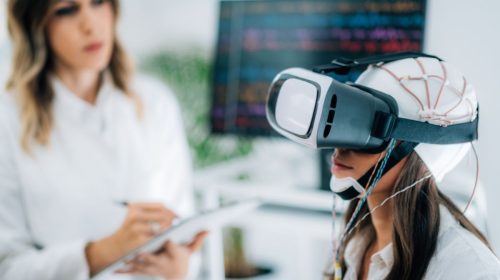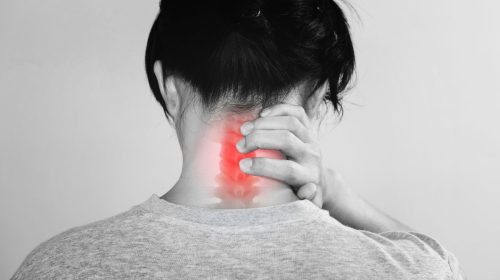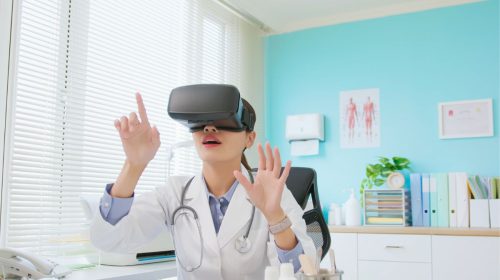Researchers at Indiana University have come up with the innovative new immersive therapy. Indiana University researchers have unveiled an innovative new use for virtual reality they have developed for use as an immersive therapy for people struggling with substance use disorders. The researchers recently obtained more than $4.9 million from the National Institutes of Health. With the funding, the team launched an Indiana University (IU) startup company for the testing and further development of the virtual reality technology. The team was led by assistant professor of psychiatry Brandon Oberlin from…
Read MoreCategory: Health Care Industry
Mobile commerce is affecting all industries but the health care is one that stands out amongst the rest. The industry is mainly using mobile apps and augmented reality to make headlines.
Smartphone use commonly impacts necks, elbows, thumbs and pinky fingers
Frequently holding a device can gradually build painful conditions in these parts of the body. Smartphone use has become life changing for pretty much everyone these days, but among the downsides of this trend can include physical injury from repetitive use. Among the most common injuries are those to pinky fingers, thumbs, elbows and necks. “Constant cellphone use can cause a range of joint problems. While some claims of injury might be overstated, others are real and involve serious, long-term damage,” said Peter J. Evans, MD, PhD, orthopedic surgeon. The…
Read MoreVR tech can help ease anxiety in pediatric cancer treatments
Lawson Health Research Institute and Children’s Hospital at London Health Sciences Centre is testing it. Researchers at Lawson Health Research Institute and Children’s Hospital at London Health Sciences Centre (LHSC) have started using virtual reality (VR tech) to reduce fear and stress levels in kids undergoing painful medical procedures such as those used for treating cancer. The virtual reality technology will be used for kids that need port access for their treatments. The research will look at treating patients between the ages of 5- and 17-years requiring port access. This…
Read MoreVirtual and augmented reality for healthcare to become $9.7B market in 5 years
The next half decade will be a defining one for AR and VR in this particular niche of the marketplace. The augmented reality (AR) and virtual reality (VR) market is expected to experience substantial growth over the next 5 years within the specific healthcare niche. AR and VR in healthcare are currently estimated to be worth nearly $2.7 billion. A new report titled “Global AR-VR in Healthcare Market, By Component (Hardware, Software), By Device Type, By Application, By End Use, By Region, Competition, Forecast & Opportunities, 2017-2027F” showed that the…
Read MoreNew artificial intelligence tool may spot Alzheimer’s sooner
This language processing tool could help to provide earlier diagnoses mental degenerative diseases. Researchers at Boston University have developed a new artificial intelligence tool that they say has the potential to help with earlier diagnosis of Alzheimer’s disease and other mental degenerative diseases. The AI software can be used for detecting cognitive impairments and spot Alzheimer’s earlier. The researchers published their findings in The Journal of the Alzheimer’s Association. Within their paper, they indicated that their artificial intelligence tool uses a machine learning computational model that can use audio recordings…
Read More




